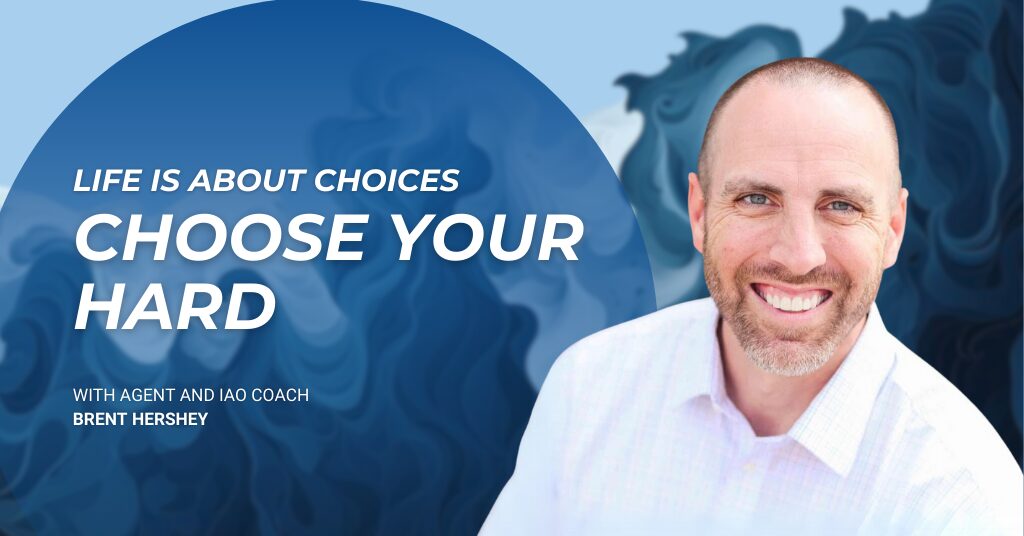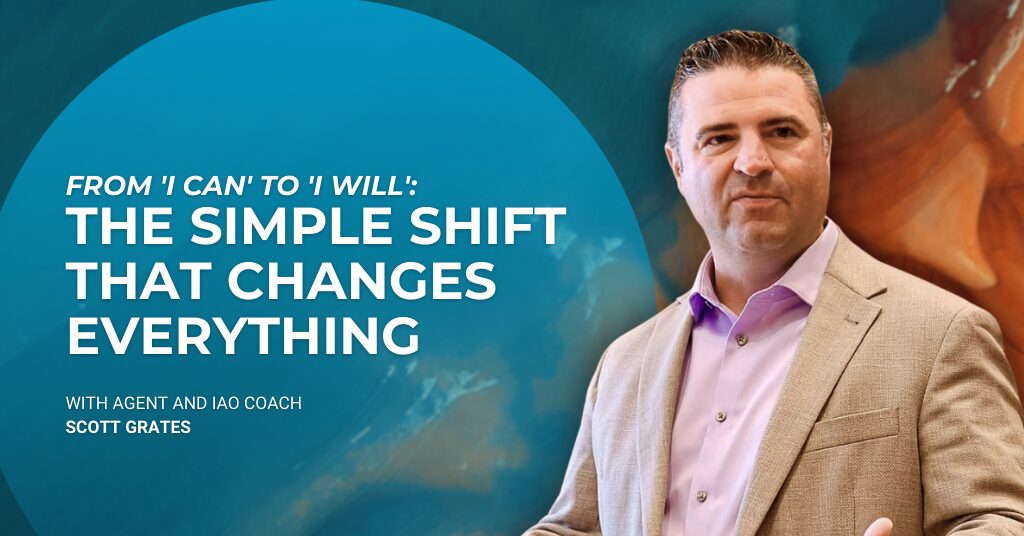This Morning Huddle video originally aired as part of our Mastermind Members’ Daily Virtual Coaching. Mastermind Members receive video training each morning to use as a Team Member meeting, accountability tool, or general resource for great information about insurance, sales, productivity, efficiency, mindset, personal development, and more. Learn more about our programs for Insurance Agency Owners and Insurance Agency Team Members.
Today I want to share with you a story of a man named Maury.
It’s been many years since I told this story, so I’m excited to go back down memory lane.
When I was in college in Rochester, NY, I saw an ad in the paper my senior year.
They said I could make $30,000 a year at a local furniture store.
I thought to myself, “Well, how hard can it be to write up some orders for some couches and recliners, right?”
So I went. I applied. I interviewed, and I got the job. Nights, weekends, holidays.
That was my first job in sales, and I didn’t know at the time, but I’d be cutting my teeth in arguably the most difficult type of sales other than cars: retail. But can you think of a place where people want to deal with salespeople wearing cheap suits, less than a furniture store?
Every single person that entered the showroom immediately started studying their feet and looking down. They also practice what I call the Heisman pose, where they give you the hand. The last thing these people wanted to do was talk to me, but here’s the deal:
We worked on what’s called an ‘up system.’ We put our names on a list in the sales office, and each time a customer walked into the door when you were up next on the list, that was your customer until they left.
Once they left, you can put your name back at the bottom of the list, and you waited until your next ‘up.’ This was a 100% commission job, so no sales meant no money.
Now, I’m not the smartest person in the world, but I was able to figure out at the age of 20 that if I was going to get paid for the time that I spent at that store, I was going to have to figure out how to build some rapport. I would have to do it quickly with people who didn’t want to speak to me.
This experience taught me a few things, including pushing my agenda hard out of the gates meant nothing to them.
In fact, it only pushed the people walking in away from me. It also taught me that if I was going to have the opportunity to speak to them, I had to get good at the open.
I introduced myself. I gave them a quick lay of the land and overcame their first objection, which was always, “I’m just looking” or “I’m all set.”
I had to do this before they gave me the chance to do it. So I would be preempted with my strike, and I’d say, “Hey, welcome to the showroom. My name is Scott, and I’m here to enhance your shopping experience in any way possible. Now our designers have done a tremendous job decorating the showroom and have over 70,000 square feet of top-of-the-line furniture for you to look at or jump around on, whatever you have to do. So what I’d like to do is give you time to browse around on your own, and what I’ll do is I’ll grab you some water and snacks for you to enjoy, and I’ll circle back around with you. Does that sound good to you?”
So what happened there? A warm welcome, who I am, and the purpose I serve. A little value about top-of-the-line furniture that we offer and that I know that they want to look, and I want them to look as well. Then I offered to come back with water and snacks, which people said yes to, permitting me to check back in with them.
Finally, I checked for acceptance, “How does that sound?” They say, “Yeah, sounds great.”
Now I have permission. I asked them if it was ok to give them time to look around and then come back to see them. Because they said, “yes,” now when I approach them, they know I’m coming, and they’re more comfortable.
We’ve established a little bit of rapport, a little bit of relationship, and they start asking me questions.
Now you see, I saw so many people fail in that store because they tried to start selling as soon as the customer walked in. But the customer wasn’t ready yet, and the salesperson hadn’t earned the right to start selling to them yet.
So what happened? The customer pushed them off until the salesperson quit the process. They put their name back on that ‘up list,’ they did the same thing again and then complained at the end of the day because they couldn’t sell anything.
Or they would say they didn’t get any good opportunities; all the leads were crap, all the people coming in were no good. They watched other people making sales and what do they do? They said, “Well, they’re lucky because they get all of the good ups.”
Funny how those who consistently have great sales production numbers are always lucky month after month.
It couldn’t have had anything to do with their sales process, right?
Now to my story of Maury.
Maury, at the time, was a 72-year-old man that I met at the furniture store. He was still working 40 hours a week, not because he needed to. He had plenty of money, but because he truly enjoyed his work.
Maury walked in every shift, and when we would all race to put our name on the ‘up list,’ Maury didn’t. Why?
Because he didn’t need to.
Maury had spent his entire career following the sales process. The same multi-line sales process that I teach you, the Mastermind members, and your team members.
He always had good sales intentions. He always did the right thing for the right person at the right moment. He started his career in furniture in his 20s, 50 years before I met him and how’s this for results compounding over time.
For 50 years, Maury did all of the little things right day after day, week after week, year after year. When I worked at the store during college, one out of every three people asked to work with Maury personally.
Now, poor Maury was 72 years old. He couldn’t keep up with the demand for his services, and, most days, he never even ate the whole shift he was there.
During snowstorms in Rochester, NY, there were times that the showroom would have 23 people in it. Six were customers waiting to see Maury, and the other 16, 17 were salespeople sitting around, twiddling thumbs, waiting for our next ‘up.’
But the point is this. Maury understood something that we talk about relentlessly in this training, in this environment: We are not in the business of selling but rather the business of reselling.
Because Maury was always honest, always sincere, always helpful, and delivered a ton of value, people liked him and trusted him. When Maury didn’t have a product or a solution to satisfy the customers’ needs, he told him that. What happened from there?
They trusted him even more and they always came back happier the next time. Maury was their furniture person, top of mind when it came to furniture. People referred their friends and family to him, and Maury was a tremendous note-taker.
He carried around this old, tattered briefcase with a notebook in it, probably from the 60s, and he would take notes by hand after every customer interaction.
And what would happen is when a vendor would release a new piece of furniture, like a living room collection, he’d review which customers own that collection, and then, during his downtime, he didn’t sit around and chitchat. He got on the phone, and he started making sales over the phone when that new piece came in.
People loved, trusted, and respected Maury so much they didn’t even need to come in to see that piece of furniture. They just knew that if Maury says they need it for their collection, and it fits into the room, deliver it.
That’s how good he was. But it didn’t start that way. It didn’t start that way for him when he was in his 20s, just like me.
He had no idea how to sell, but he was willing to learn the process and commit to doing the right thing for the right person at the right time.
And what was the result?
Well, it’s exactly what we preach at IAO every single day: small daily wins compound over time into massive results.
Today I want you to be like Maury. I want you to think like Maury. I want you to act like Maury.
Think about how you can position yourself today and determine the little things you can do to create long-lasting success in the future.




